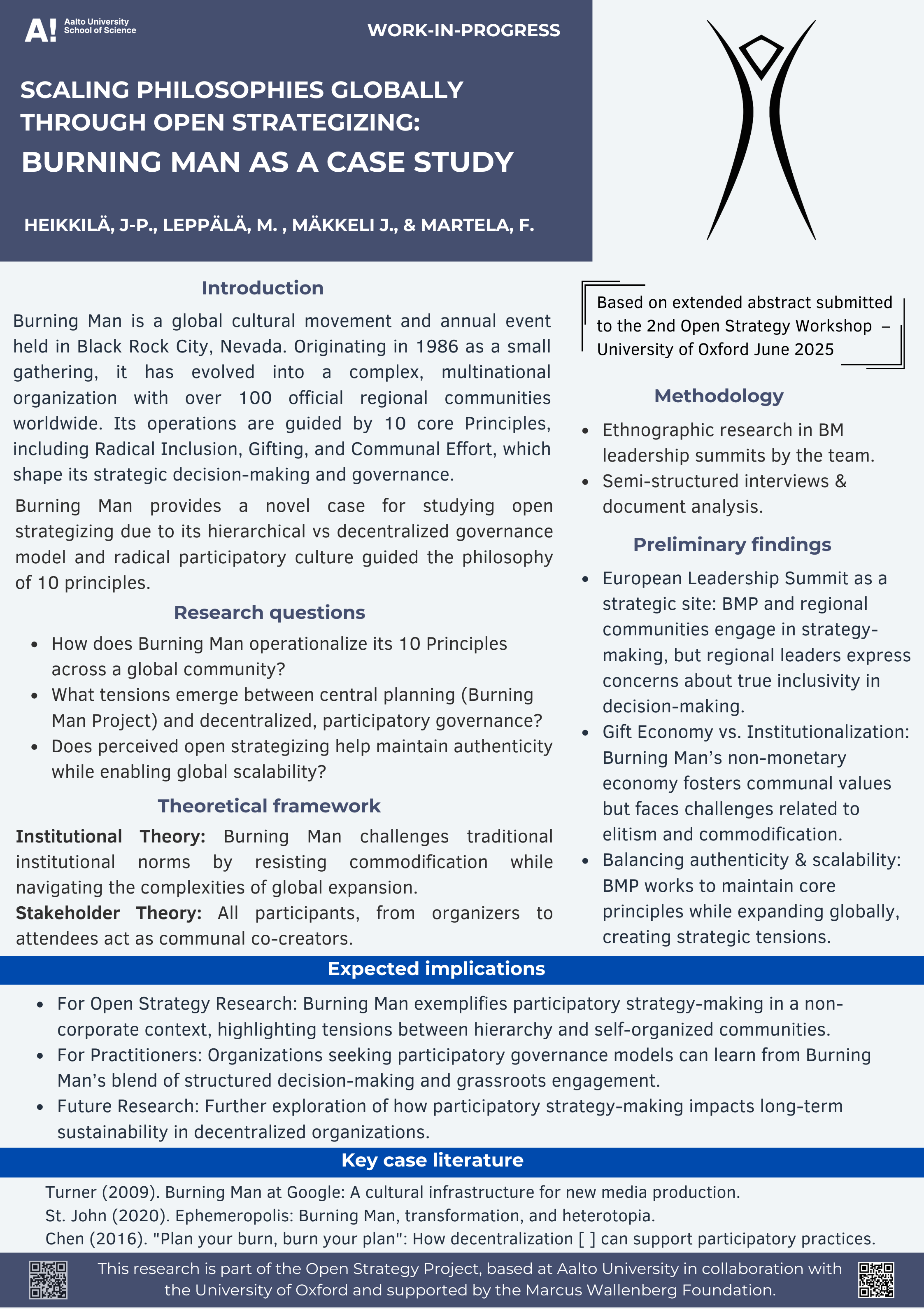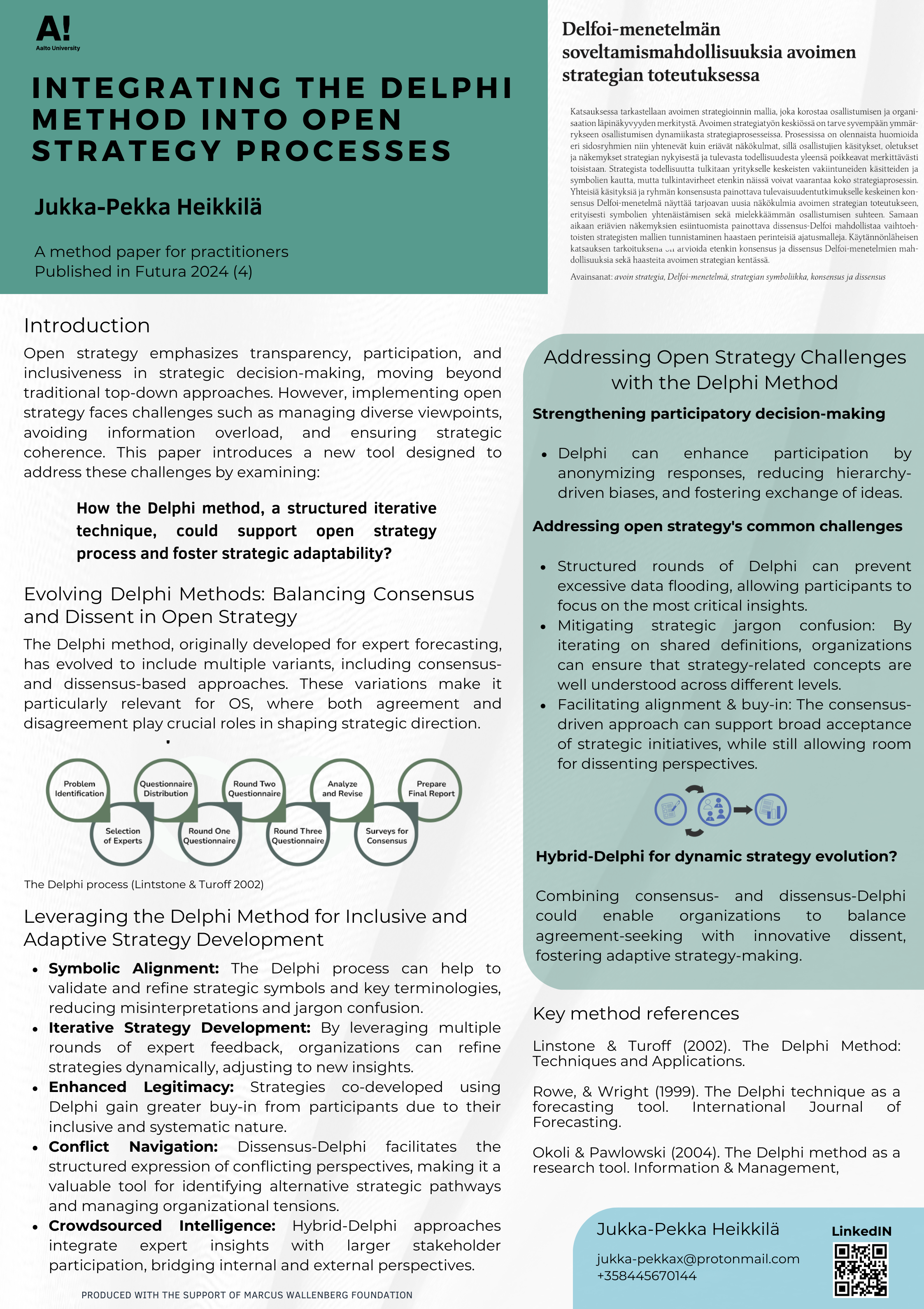Contributions to the 2nd Open Strategy Workshop at Oxford
Our research team participated in the 2nd Open Strategy Workshop, held at the University of Oxford on 25–26 June 2025. The workshop brought together scholars to present and discuss current research on the practices, challenges, and future trajectories of open strategy. First things first, we wish to express a heartfelt thank you to the organizers for creating such a thoughtful and inspiring program and the community was amazing as always.
We contributed the meetup with two studies, bringing to the venue a global countercultual movement as an organizational case, and the application of methodological tools, Delphi, from futures research to strategy implementation. Below are short summaries and posters of the works:
Scaling Philosophies Globally Through Open Strategizing: Burning Man as a Case Study
By Jukka-Pekka Heikkilä, Mia Leppälä, Jori Mäkkeli & Frank Martela
This study examines the Burning Man movement as an unconventional form of multinational organization. What makes it interesting for us is that Burning Man combines the structures of a centralized nonprofit entity, the Burning Man Project, with the decentralized governance of over 100 regional communities worldwide. Although institutional settings of the communitiues vary, they all are guided by Ten Principles, which articulated a shared ethos of participation, gifting, and radical inclusion.
The ongoing research drews on institutional theory and stakeholder theory, to analyze how Burning Man negotiated the relationship between headquarters and its global network. A particular focus was placed on the European Leadership Summit, Ethnographic fieldwork and interviews suggest that these events provide both opportunities for alignment and arenas of contestation, as participants navigate tensions between maintaining regional "Burner" authenticity and enabling US - based scalability. By examining Burning Man as a hybrid organization that operates between corporate and countercultural logics, the study aims to contribute on understanding how open strategizing unfolds in multinational contexts characterized by value-driven, participatory governance.

Introducing the Delphi Method for the Implementation of Open Strategy
By Jukka-Pekka Heikkilä (Aalto University)
The second contribution explored the Delphi method as a potential tool for supporting the implementation of open strategy. The method was originally developed 1950s by the US military´s forecasting agendy RAND to forecast likelihoods for Soviet nuclear strike. The conceptual paper sets the stage by arguing that implementation often encountered challenges related to conflict, misaligned expectations, and contested interpretations of strategic concepts. A key difficulty lays particularly in the role of strategic symbolism—terms and concepts understood differently by organizational actors.
The Delphi method providea a structured communication process that could help address these challenges. The works presents three variants of Delphi—consensus-Delphi, dissensus-Delphi, and hybrid Delphi where the consensus-oriented approaches supports the formation of shared understandings, and dissensus-oriented approaches created space for divergent views and constructive conflict. Unsurprisingly, hybrid approaches offer the possibility of combining these dynamics, making them particularly suitable for complex organizational environments.
Delphi could serve as a methodological bridge between participation and effective implementation as its iterative, anonymous, and feedback-driven design can mitigate hierarchical pressures, enable equal participation, and surface conflicting perspectives in a structured manner. Poster below presents the process more in-detail.
